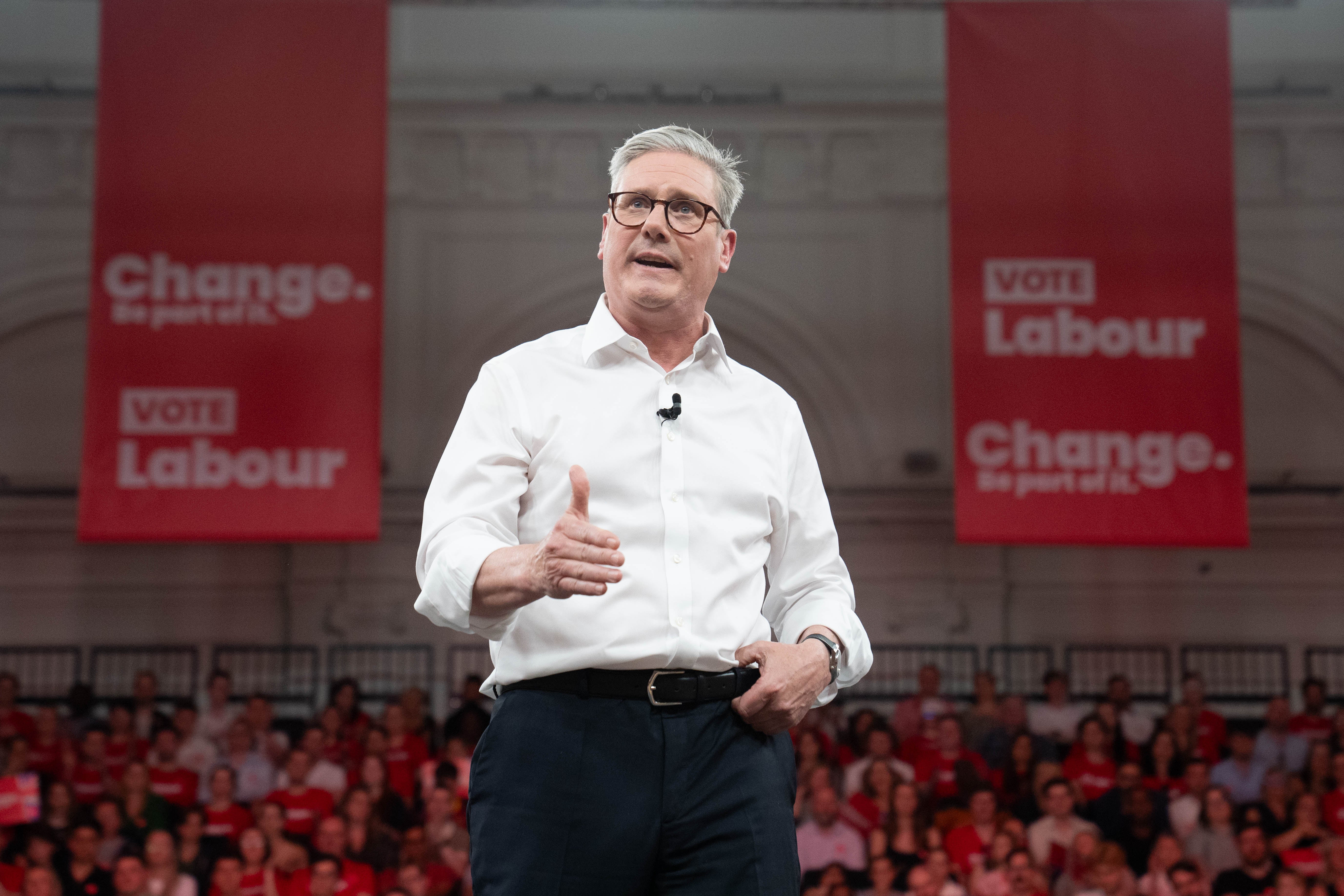How bad could the general election result be for the Tories? Pollster John Curtice’s final prediction
Leading pollster highlighted two key uncertainties in predicting final result
Polling guru Professor Sir John Curtice gave a final prediction ahead of the polls opening in the general election.
British voters are heading to polling stations on Thursday to cast their ballots, six weeks after prime minister Rishi Sunak sought to surprise his opponents by calling the 4 July election earlier than expected.
Follow our politics blog for the latest general election updates
With Sir Keir Starmer’s party sustained its roughly 20-point lead in the polls over the course of the campaign, expert Prof Curtice shared his final thoughts in an opinion piece published before voting began at 7am on Thursday.
Short of a dramatic turnaround, after the final opinion polls published on Wednesday the veteran polling expert had suggested that “it looks as though Sir Keir Starmer will become prime minister on Friday”.
“What remains uncertain is just how badly things might turn out for the Conservatives,” the University of Strathclyde professor of politics wrote for the Daily Telegraph.
One of two key uncertainties highlighted by Prof Curtice was how self-declared undecided voters will ultimately cast their ballot – with 2019 Tory voters estimated to be twice as likely to tell pollsters they “don’t know” how they will vote than those who voted Labour five years ago.
Labelling this one of many symptoms of the unpopularity the Tories have struggled to escape since the implosion of Liz Truss’s premiership, Prof Curtice said: “Many undecideds are as unhappy with the Conservatives as those who say they are going to vote differently this time around – they just are not sure what to do as a result.

“Still, if any group of voters are going to drift back to the Conservatives in the final hours the undecideds are probably the most likely to do so. But even if all of them eventually vote for the party they backed in 2019, there are not enough of them to do more than put a three or four-point dent in Labour’s lead.”
Prof Curtice also warned that a key message of the many MRP megapolls of the campaign has been that support for the Tories was falling more heavily in constituencies it is trying to defend.
In part, this is “arithmetically inevitable” given that there are more than 100 constituencies in which the party’s share of the vote in 2019 was less than the 25 per cent by which recent polls have suggested it will fall across the UK, he said.

But there is also uncertainty about how the Tory vote will hold up in many constituencies as a result of the inclusion of Nigel Farage’s Reform UK party.
While Reform opted not to stand in Tory-held seats in 2019, there is no such pact in place this time around, meaning that “whatever they win this time in these seats – primarily at the expense of the Conservatives – will be an increase on zero”, said Prof Curtice.
“However the polls do not agree on just how strong this pattern will prove to be,” he said, adding: “Mr Sunak has to hope that it proves not so strong after all.”
Join our commenting forum
Join thought-provoking conversations, follow other Independent readers and see their replies
Comments
Bookmark popover
Removed from bookmarks